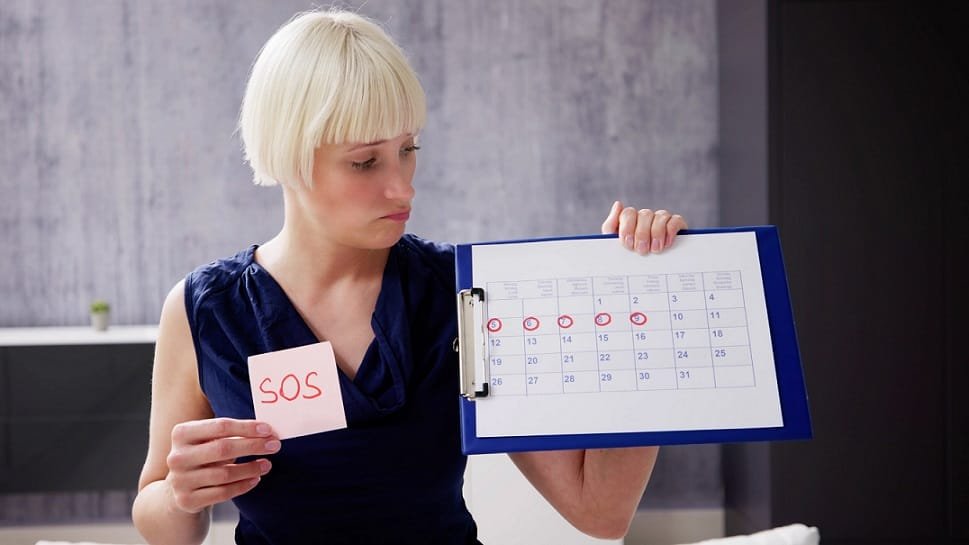Period-Related Emotional Changes
For many women, menstruation brings more than just physical discomfort; it can also trigger changes in mood and emotional well-being. From feelings of irritability and sadness to heightened anxiety and fatigue, experiencing low moods before or during your period is a common phenomenon known as premenstrual syndrome (PMS). While these emotional changes can be challenging to navigate, there are strategies and coping mechanisms that women can implement to manage their low moods and maintain emotional balance throughout their menstrual cycle. Here are some practical tips for dealing with low moods during periods.
Understand the Hormonal Influence:
The fluctuations in hormone levels that occur during the menstrual cycle play a significant role in triggering emotional changes. Estrogen and progesterone levels rise and fall throughout the cycle. These hormonal shifts can affect neurotransmitters in the brain, such as serotonin and dopamine, which regulate mood and emotional well-being. Understanding the hormonal influence on your mood can help you recognize and validate your feelings during this time.
Track Your Menstrual Cycle:
Keeping track of your menstrual cycle can provide valuable insights into patterns of mood changes and help you anticipate and prepare for low moods. Use a menstrual tracking app or calendar to record the start and end dates of your period, as well as any emotional symptoms you experience throughout your cycle. By tracking your menstrual cycle consistently, you can identify trends and patterns in your mood changes and develop strategies to cope more effectively.
Practice Self-Compassion:
Experiencing low moods during your period is a natural and normal part of being a woman. Instead of criticizing yourself for feeling down or irritable, practice self-compassion and kindness towards yourself. Treat yourself with the same understanding and empathy that you would offer to a close friend experiencing similar symptoms. Remind yourself that your low moods are temporary and that you’re doing the best you can to cope with the challenges of menstruation.
Prioritize Self-Care:
Self-care is essential for managing low moods and promoting emotional well-being during your period. Make self-care a priority by engaging in activities that nourish your body, mind, and spirit. This could include practicing relaxation techniques such as deep breathing, meditation, or yoga, taking warm baths, going for leisurely walks in nature, or indulging in hobbies or activities that bring you joy and relaxation. Prioritize rest, hydration, and nutritious meals to support your overall health and well-being.
Maintain a Healthy Lifestyle:
Maintaining a healthy lifestyle can help mitigate the severity of low moods and improve your resilience to emotional changes during your period. Focus on eating a balanced diet rich in fruits, vegetables, whole grains, and lean proteins to provide essential nutrients. Stay hydrated by drinking plenty of water and limit consumption of caffeine and sugary foods, which can exacerbate mood swings and fatigue. Regular exercise is also beneficial for boosting mood, reducing stress, and promoting overall well-being.
Manage Stress:
Stress can exacerbate emotional symptoms during your period, so it’s essential to practice stress management techniques to reduce its impact on your mood. Incorporate stress-relief activities into your daily routine, such as mindfulness meditation, progressive muscle relaxation, or guided imagery. Set aside time for activities that help you unwind and recharge, whether it’s reading a book, listening to music, or spending time with loved ones. Prioritize tasks and responsibilities, and don’t hesitate to delegate or ask for help when needed to reduce feelings of overwhelm.
Consider Professional Help:
If your low moods significantly impact your quality of life or interfere with your daily functioning, consider seeking professional help from a healthcare provider or mental health professional. They can evaluate your symptoms, provide a diagnosis if necessary, and offer treatment options tailored to your needs. Cognitive-behavioral therapy (CBT), medication, or hormonal treatments may be recommended to alleviate severe emotional symptoms associated with PMS.
Conclusion: Period-Related Emotional Changes
Dealing with low moods during periods can be challenging, but with the right strategies and support, women can effectively manage their emotional well-being and maintain balance throughout their menstrual cycle. By understanding the hormonal influence on mood, tracking your menstrual cycle, practicing self-compassion, prioritizing self-care, maintaining a healthy lifestyle, managing stress, seeking social support, and considering professional help when needed, you can navigate period-related emotional changes with resilience and grace. Remember that your feelings are valid, and you deserve support and understanding as you navigate the ups and downs of menstruation.
Explore period-related emotional changes and discover practical tips to manage low moods, balance emotions, and thrive during your menstrual cycle




